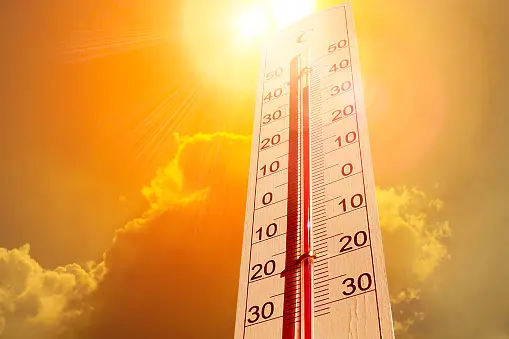The Impact of Warm Weather on Energy Consumption
As temperatures climb, our dependence on cooling systems to stay comfortable at home and work increases. Although warm weather is enjoyable for many, it also greatly affects energy consumption, resulting in higher utility bills and more stress on the power grid. Here’s how warm weather impacts energy use and some tips on managing and reducing your energy consumption during the hotter months.

Increased Use of Air Conditioning
The most direct impact of warm weather on energy consumption is the increased use of air conditioning . When temperatures soar, AC units work harder and longer to keep indoor spaces cool. This leads to a substantial increase in electricity use. In fact, cooling can account for as much as 50% of a household’s summer energy bill.
Strain on the Power Grid
During heatwaves, the demand for electricity spikes as more people turn on their AC units. This can lead to a strain on the power grid, increasing the risk of blackouts and brownouts. Utility companies may need to activate additional power plants, which are often less efficient and more costly to operate, further driving up energy prices.
Increased Wear and Tear on HVAC Systems
Your HVAC system works harder during the summer months, leading to increased wear and tear. This can result in more frequent breakdowns and the need for repairs. Regular maintenance is crucial to keep your system running efficiently and to extend its lifespan.
Higher Energy Bills
With increased energy consumption comes higher energy bills. For many households, the cost of keeping cool during the summer can be a significant financial burden. However, there are steps you can take to manage and reduce your energy usage.
Tips to Reduce Energy Consumption During Warm Weather
- Regular HVAC Maintenance: Ensure your HVAC system is in top condition by scheduling regular maintenance checks. Clean or replace air filters monthly to improve efficiency.
- Upgrade to Energy-Efficient Systems: Consider upgrading to a more energy-efficient AC unit. Look for systems with a high Seasonal Energy Efficiency Ratio (SEER) rating.
- Use Programmable Thermostats: Programmable thermostats can help you control your cooling system more efficiently by adjusting the temperature when you’re not home.
- Seal and Insulate: Properly sealing and insulating your home can prevent cool air from escaping and warm air from entering, reducing the load on your AC unit.
- Use Fans: Ceiling fans and portable fans can help circulate cool air and reduce the need for constant AC use.
- Close Blinds and Curtains: Keeping blinds and curtains closed during the hottest part of the day can block out the sun’s heat, helping to keep your home cooler.
- Cook Smart: Avoid using the oven during the hottest parts of the day. Opt for grilling outside or using a microwave to reduce indoor heat.
Understanding the impact of warm weather on energy consumption is the first step in managing your energy use effectively. By taking proactive steps to maintain your HVAC system, upgrade to energy-efficient appliances, and adopt energy-saving practices, you can stay cool and comfortable without breaking the bank. If you need help optimizing your HVAC system for the summer, contact us for professional advice and services. Stay cool and energy-efficient!

